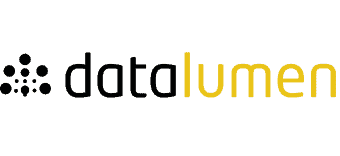A ROBUST DATA GOVERNANCE FRAMEWORK: YOUR BEST PROTECTION AGAINST THE PERIL OF A DATA HOUSE OF CARDS
Data needs to be effectively managed, protected, and leveraged to derive valuable insights. And that is where data governance frameworks come into play. Data governance frameworks provide a structured approach to establishing policies, processes, and guidelines for data management, ensuring data integrity, privacy, and compliance. In this article, we will delve into the importance of data governance frameworks and explore key components that contribute to their success.
Why Data Governance Frameworks Matter
Data governance frameworks can serve as the backbone for organizations to establish a holistic and consistent approach to managing their data assets. Here are a few reasons why data governance frameworks matter:
- Data Quality and Integrity: Data governance frameworks emphasize the importance of data quality, ensuring that data is accurate, consistent, and reliable. By implementing data governance practices, organizations can improve the overall integrity of their data assets, reducing errors and enhancing decision-making capabilities.
- Compliance and Risk Management: With an increasing number of data protection regulations, such as GDPR and CCPA, organizations face stringent requirements for data privacy and security. Data governance frameworks help establish policies and procedures to ensure compliance, mitigate risks, and protect sensitive information from unauthorized access or breaches.
- Stakeholder Collaboration: Data governance frameworks foster collaboration among stakeholders across the organization. By defining roles, responsibilities, and processes, these frameworks enable effective communication, coordination, and decision-making regarding data management practices.
Key Components of Data Governance Frameworks
While data governance frameworks may vary depending on organizational needs, several key components contribute to their effectiveness:
- Data Governance Policies: Policies act as the foundation of data governance frameworks, defining the principles and guidelines for data management. These policies address data ownership, data classification, data sharing, privacy, and security measures. They provide a clear direction for employees on how to handle data and ensure compliance with regulatory requirements.
- Data Stewardship: Data stewardship focuses on the responsibility of individuals or teams within the organization to manage and govern data effectively. It involves assigning data stewardship roles and responsibilities, establishing data quality standards, and monitoring data integrity throughout its lifecycle. Data stewards act as custodians of data, ensuring its accuracy, availability, and appropriate use.
- Data Classification and Categorization: Data governance frameworks include mechanisms for classifying and categorizing data based on its sensitivity, criticality, and usage. This enables organizations to apply appropriate security controls, access restrictions, and retention policies. Data classification also aids in identifying and prioritizing data governance requirements based on the value and risk associated with different data types.
- Data Lifecycle Management: Effective data governance frameworks encompass the entire data lifecycle, from data creation to archiving or disposal. They define processes for data collection, storage, integration, analysis, and archival, ensuring data is managed consistently and securely throughout its journey. This includes data quality assessment, metadata management, data retention policies, and data archiving strategies.
- Data Privacy and Security: Data governance frameworks address privacy and security concerns by establishing policies and practices to safeguard sensitive information. This includes implementing access controls, encryption techniques, data anonymization, and monitoring mechanisms to detect and respond to data breaches or unauthorized access attempts.
Conclusion
Data governance frameworks are indispensable for organizations seeking to manage data effectively, mitigate risks, and comply with data protection regulations. By establishing clear policies, roles, and processes, organizations can ensure data quality, integrity, and privacy while enabling collaboration and decision-making across the enterprise. It is crucial for organizations to tailor their data governance frameworks to their specific needs and continually evolve them to adapt to changing data landscapes and emerging challenges. With a robust data governance framework in place, organizations can build a solid foundation for leveraging the power of data.



